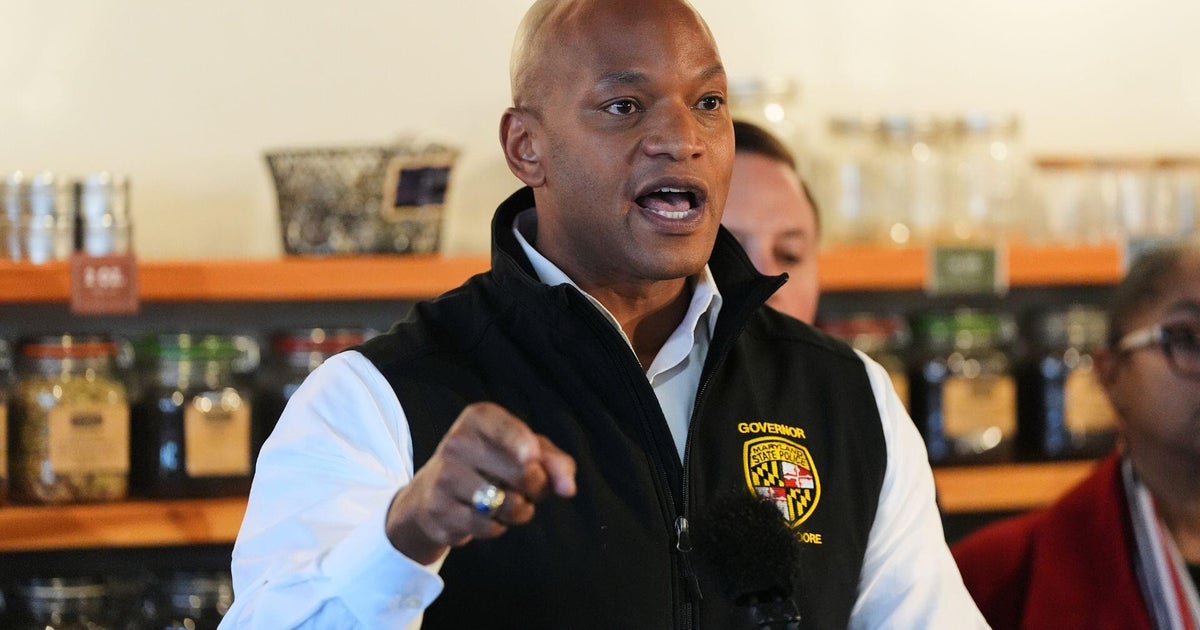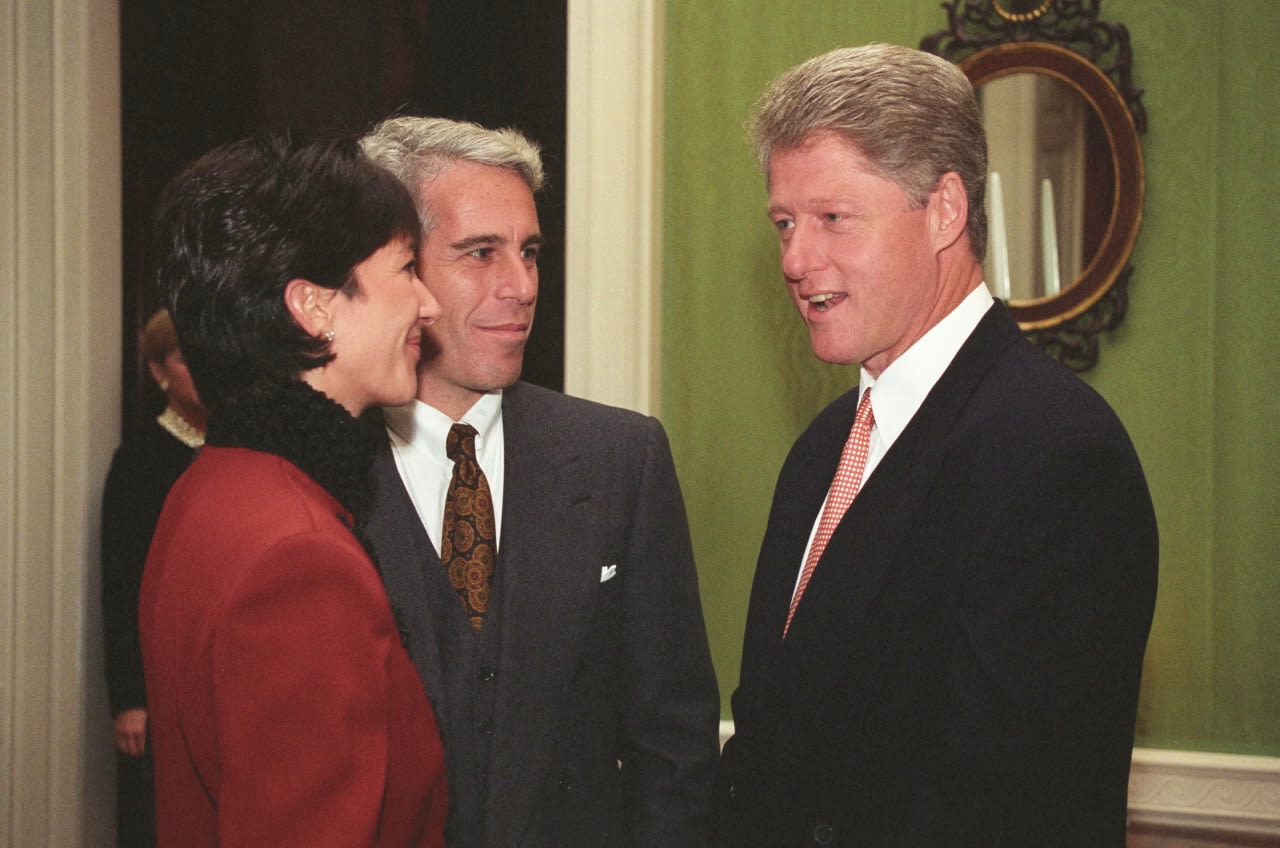Transcript: Reps. Brian Fitzpatrick and Jared Golden on "Face the Nation," Feb. 25, 2024
The following is a transcript of an interview with Reps. Brian Fitzpatrick, Republican of Pennsylvania, and Jared Golden, Democrat of Maine, that aired on Feb. 25, 2024.
MARGARET BRENNAN : -- And pick up another one, with Republican Brian Fitzpatrick and Democrat Jared Golden, two congressmen who have proposed an alternative to the foreign aid bill that passed the Senate and was declared by the Speaker of the House to be dead on arrival. Do you have any confidence that there's a way to get Republican leadership to move on this?
REP. BRIAN FITZPATRICK: I do. We have a bipartisan bill. It's the only one in the House. And as of Friday, we have filed with the clerk, expedited consideration. Normally, any kind of discharge like that would take 30 days to be considered right, we figured out a way with a parliamentarian to expedite that to a seven-day period.
MARGARET BRENNAN: Just to be clear, this is to go around the Speaker of the House who has refused to put a bill on the floor?
REP. FITZPATRICK: Well it's--
MARGARET BRENNAN: Or forcing him to consider--
REP. FITZPATRICK: -- It's- it's just a way to get a mechanism to get a bill to the floor. And just to be clear about what we're trying to accomplish here. This is time sensitive, it's existential. I just got back from Ukraine. Avdiivka fell in the past seven days. We lost Laken Riley in the past seven days. And in the past seven days, 200 families had to bury their kids because of fentanyl. So what our bill does is it combines border security with this foreign aid, both existential. And we are forcing this bill to the floor to make sure that everybody acts because as President Zelensky said, they have weeks and not months to get reinforcements on the frontlines.
MARGARET BRENNAN: So you are trying to create an alternative to the bill that's about 60 billion- yours is about 49 or so billion. Congressman Golden- Golden here, one of the things that's not in this bill, though, is humanitarian aid for Israel and for Ukraine. That's a non-starter for a lot of Democrats. And you have a Remain in Mexico border security policy here that forces migrants to wait outside the US while their asylum claim is processed. How are you going to get fellow Democrats to get on board with this?
REP. GOLDEN: Well, I think that the most important thing to remember here is that the votes are there to support Ukraine and our other allies, Israel, Taiwan. And I think that the votes are there on border security as well. You know, the Senate started with a bill, they had to boil it down to whatever could get 60 votes. The House needs to go through a very similar process. Brian and I are actually talking about having a more open debate on the House floor. Amendments should be in order, we need to find a way to get a deal that gets us to 218. I think a deal like that has to grow out of the middle, and is unlikely to begin with a one-party solution.
MARGARET BRENNAN: So are you saying within that then, if your bill is up for consideration, amendments, like adding in things like humanitarian aid are possible?
REP. GOLDEN: Potentially, yes. Although I think that we also have to set priorities. So at the end of the day, what are the most important crises that we have to deal within the here and now in the very short term, and I would say that that would be securing our border, and also helping avoid battlefield catastrophes in Ukraine.
MARGARET BRENNAN: Congressman Fitzpatrick, in choosing to go this route, it is defying the Speaker of the House, Mike Johnson, who has said that, you know, he- I mean, he- he said the initial Senate Bill was dead on arrival here. But then he is also seemingly speaking to the Democratic Leader in the House. Are you concerned that you might be undercutting the opportunity to get that bigger package ultimately passed? Or is it indeed, so dead on arrival, you need this backup plan?
REP. FITZPATRICK: I don't think we're short circuiting anything, we are adding a pressure point to make sure this gets done because we cannot afford to wait here. And, you know, if the Senate bill were to make it to the floor, it would have, you know, a lot of Republican votes--
MARGARET BRENNAN: -- you would vote for it?
REP. FITZPATRICK: I would. If our bill gets to the floor, it will also have a lot of votes. I mean, Jared can- can reflect the Democratic caucus perspective, but we think, you know, super, you know, a super majority, I think, two thirds of the House would support this. It is open to amendments. So our bare bones language was just a vehicle to get to the floor. But what we're trying to do is to make sure that we do not waste another day, because these are, I mean- Ukraine is in dire straits right now. And that's what I wanted to do. That's why we're doing this. This is actually to complement all the other conversations going on and a potential compromise that might ensue.
MARGARET BRENNAN: Okay. Does the Democratic leader Hakeem Jeffries support what you're doing?
REP. GOLDEN: You know, they currently are pushing for the Senate Bill. Obviously, they have a discharge petition. What I would say is that the discharge petition doesn't have any Republican support. What we have now is a bill with a discharge petition that is led by a Republican,
MARGARET BRENNAN: This is just the procedural way to bypass leadership to get a vote.
REP. GOLDEN: Correct. That's right.
MARGARET BRENNAN: But you're not concerned, to borrow your phrase, that you're short circuiting the bigger package.
REP. GOLDEN: My concern is, what is it going to take to get a bill to the floor that can enable the House of Representatives to take action on two key priorities. One, how do we get our own border under control. Two, how do we support our allies in their existential fights in Ukraine and in Israel.
MARGARET BRENNAN: So we're also up against the deadline of this potential partial government shutdown, March 1. What is the timeline for what you're trying to do and isn't the priority number one, keeping the lights on?
REP. FITZPATRICK: Absolutely. And maybe we hit you right on the CR with this, right? I mean, hopefully we can think--
MARGARET BRENNAN: -- Something this big, you think?
REP. FITZPATRICK: Yeah, this is not very big. This is I mean, this is--
MARGARET BRENNAN: -- Fifty billion?
REP. FITZPATRICK: This is a pared down. But well, it's military aid, which by the way, 80% of which gets spent inside the United States. That's a big misnomer that's being perpetuated. You either believe that what we're doing for Ukraine, Israel, and- and Taiwan, is an act of charity or you believe it's an act of global security. We believe it's an act of global security. That's an investment. 80% of that money gets spent inside the United States modernizing our own military in a way that we weren't prepared to do before.
MARGARET BRENNAN: Congressman Patrick McHenry was with my colleague here on CBS just the other day, and he said, "you can either die a speaker and worry about them taking you out or live every day as your last." He's trying to prod the Speaker of the House to be more decisive, is your action a sign that you also think Speaker Johnson needs to be more decisive?
REP. FITZPATRICK: I think Mike's in a tough political spot right now and needs all the help he can get from all of his allies in the House. So this is a mechanism--
MARGARET BRENNAN: -- Because he could be ousted.
REP. FITZPATRICK: That's always a risk. I mean, anytime you have a one person motion to vacate, which by the way is never going to happen ever again. We're not going to buy that line ever again. Because you see how it's manifested on the floor this cycle. It's basically created gridlock. We will never ever agree to that ever again. But we got to get through this cycle. We have time sensitive existential challenges right now. Ukraine is weeks away from giving up significant ground, and we cannot allow Russia to win. So what we're doing is adding an additional pressure point to get a bill to the floor that has bipartisan support in the House. My conversations with my Senate colleagues, any bill that comes out of the House with bipartisan support, in all likelihood will emerge out of the Senate.
MARGARET BRENNAN: Even though this would not be what the Senate has already approved.
REP. FITZPATRICK: What we're going to open up to amendments, we're- our- our vehicle is bare bones. It's going to be open up to amendments and let the House work as well.
REP. GOLDEN: And it's important to point out that the Senate would likely take up something that passes the House with a bipartisan vote.
MARGARET BRENNAN: We will watch this important move and we'll talk more about Ukraine ahead in the program. We'll be right back.



